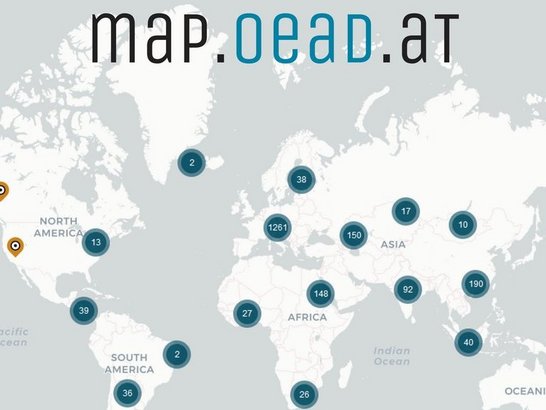Nigeria
Country Representative
Prof. Dr. Christian Anieke (Godfrey Okoye University) christiananieke2@gmail.com
Deputy: Prof. Abdulkarim Sabo Mohammed (Federal University Dutse); abdulkarim@fud.edu.ng
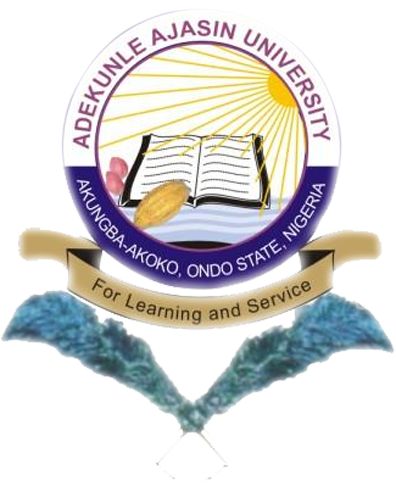
Adekunlje Ajasin University | membership 2025 not active
The University was first established as Obafemi Awolowo University, Ado-Ekiti in March 1982 by the Government of the old Ondo State and had a change of name to Ondo State University in 1985. It was relocated to Akungba-Akoko in the new Ondo State in 1999, following the creation of a new state out of the old Ondo State three years earlier in October 1996. The bill backing the relocation was signed into law in November 1999, and that prompted the movement of a crop of workers from the old site in Ado-Ekiti to Akungba-Akoko on 1 December 1999. In honour of the founding father, the name of the institution was changed in 2000 to Adekunle Ajasin University. The University has waxed great in many respects and has attained the position of the Best State University in Nigeria on several occasions while consistently holding commendable national webometric ranking. The University has broad programmes in the Pure & Applied Sciences, Arts, Law, Education, Agriculture, Social and Management Sciences and only recently added a new Faculty of Environmental Design and Management.
Vision and Mission Statement: To be a foremost institution that moves manpower development in the direction of self-reliance, apprenticeship, a first class university in research, knowledge, character and service to humanity. To provide knowledge and skills for self-reliance in a conducive environment where teaching and research can take place.
Membership: Since 2024
Representative: Prof. Victor Olumekun
Victor Olumekun is a Professor in the Department of Plant Science & Biotechnology, Adekunle Ajasin University and does research in Plant Physiology, Environmental Science and Ecology. He was Guest Scientist at the University of Vienna for limited periods between 2001 and 2003. His current projects are in Natural plant products and Energy Generation from local biomass resources. He was Director of Pre-Degree (2000-2003), Director, Centre for Diploma & PreDegree Studies (2003-2004), Director Centre for Entrepreneurship Development (2010 - 2012), Dean of Science (2011 - 2016) and Director, Centre for Research and Development (2016 - 2019). He was a Visiting Professor at Kampala International University, Kampala, Uganda (2019-2020) and he is currently the Director of the University Advancement Office.
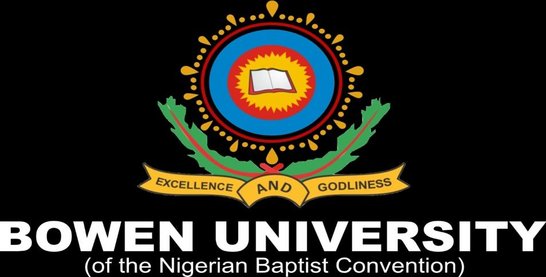
Bowen University
Bowen University is a premier Baptist University in Africa and was established on the 17th July, 2001 in Nigeria upon approval by the Federal Govemment of Nigeria. The university is a centre of learning and research, combining academic excellence with love of humanity. The University is committed to promoting her core values which are Godliness, Excellence, Entrepreneurship, Innovation and Social Responsibility. Bowen University has a robust academic structure that supports its academic programmes. The university's academic structure is divided into colleges and programmes. The university has 43 approved undergraduate and 38 approved postgraduate programmes by the National Universities Commission across the seven colleges. Bowen University has a range of diverse innovative courses that deliver an educational experience which enable the students to meet their future career ambitions. Bowen University is a member of Association of Commonwealth Universities (ACU). The university houses the world's first and only deployed Super Dual Auroral Radar Network (Super DARN) around the equator. The system is named Virginia Tech-Nigeria Bowen Equatorial Aeronomy Radar (VT-NigerBEAR). The radar network is the 36th of such in existence around the world; it is a network of high frequency radars that investigates the earth's upper atmosphere, providing insight into variations in atmospheric conditions and weather hazards. Bowen University has been rated as one of the top ten universities with most employable graduates in Nigeria and graduates from the University are spread across all regions of the world doing excellently weil with positive global impacts. Six of the current staff members are among the world's best top 2% scientists in 2023 as released by Stanford University and ten staff members are among the top 500 authors by scholarly output in Nigeria over the period of 2020 to 2023 as released by SCIVAL.
Membership: Since 2024
Representative:
Prof. Jonathan Babalola
vc@bowen.edu.ng and jonathan.babalola@bowen.edu.ng
Prof. Jonathan 0. Babalola is a Professor of Chemistry. He is presently the Vice-Chancellor of Bowen University. His area of specialization is biophysical chemistry with specific research interest in structure-function relationships of proteins and emphasis on haemoglobin, lipid transfer and membrane fusion and biosorption of pollutants using biomass and nanoparticle-doped biomaterials. He graduated with Bachelor of Chemistry B. Sc (Ed.) (Hons.) at Obafemi Awolowo University, Ile-Ife, Osun State, Nigeria in 1989, Master of Science, M.Sc. Biophysical Chemistry and Doctor of Philosophy Ph.D Biophysical Chemistry at the University of Ibadan, lbadan, Nigeria in 1993 and 1999 respectively. He did Postdoctoral studies at the Physics Section of the Public Health Department, Faculty of Medicine, University of Parma, Italy (2003-2004) and at the Kekule Institute for Organic Chemistry and Biochemistry, University of Bonn, Germany (2004-2005). Prof. Babalola is a member of many professional and academic bodies. He has participated in many national and international conferences and workshops. Prof. Babalola has 136 publications (111 journal articles, 15 edited books, 4 book chapters, 4 conference proceedings and 2 technical reports). He has supervised 17 Ph.D theses in addition to many M.Sc. research projects. He is a Fellow of the Nigeria Academy of Science and the Public Affairs Secretary of the Academy. He is also a Fellow of the Royal Society of Chemistry (UK) and Fellow of the Chemical Society of Nigeria.
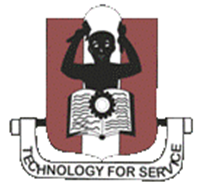
Enugu State University of Science and Technology (ESUT)
The Enugu State University of Science and Technology (ESUT), as it is known today was founded as Anambra State University of Technology (ASUTECH) by the then government of His Excellency Chief Dr Jim Ifeanyichukwu Nwobodo the Executive Governor of Anambra State via edict number 7 of 30th July 1980. ASUTECH was established as a non-residential University, having a multi-campus arrangement. It had a peculiar administrative structure with a President as the Chief Executive Officer. A renowned scholar, Professor Kenneth Onwuka Dike (now late) was appointed its first President. The main campus was on a temporary site at former Institute of Management and Technology (IMT) Independence Layout, Enugu, while the other campuses were located at Awka, Nnewi, and Abakaliki. The Enugu campus commenced lectures on 30th October 1980. Formal lectures began at Awka Campus on 3rd February 1981. Both campuses started with Faculties of Engineering, Science, and Technology, offering identical courses with duplication of departments. However, in August 1982, the Senate and the Council of the University rationalized and split the departments between the Enugu and Awka campuses. Meanwhile the Nnewi and Abakaliki campuses could not commence operation until 1987 due to logistic difficulties. In June 1985, the University authorities saw the compelling need to expand the programmes to include the faculties of Education, Environmental Sciences, Law, Social Sciences and Management Sciences. Also, as a result of the unsuccessful attempt at merging ASUTECH with the Institute of Management and Technology as a single entity in July 1985, the University edict of 1980 was repealed and replaced with the edict number 20 of 1985, reaffirming the four-campus structure and the philosophy/objectives of the founding fathers. This edict changed the administrative structure to the conventional system of University administration in Nigeria with the Vice-Chancellor as the Chief Executive. Following the creation of Enugu State out of Anambra State in 1991 by the then Military President General Ibrahim Gbadamasi Babangida, ASUTEC metamorphosed into Enugu State University of Science and Technology while the campuses at Awka and Nnewi became the nucleus of the new Anambra State University, which was later to become a Federal University, the Nnamdi Azikiwe University, Awka. ESUT, however, adopted and retained the identities of ASUTECH, including its motto, colour, logo, philosophy, and aims/objectives. With passage of time, a new campus of ESUT was established at Abakaliki to accommodate the Colleges of Medicine and Agriculture since the former College of Medicine at Nnewi had been taken over by the newly created Anambra State. Again, four years after the creation of Enugu State, the young State had to forfeit the Abakaliki campus to the newly created Ebonyi State out of Enugu State and Abia State. The College of Medicine had to be moved to Nsukka and the College of Agriculture to Enugu as Faculty of Agriculture. In August 2005, the College of Medicine at Nsukka relocated to Park Lane Hospital, now upgraded to a Teaching Hospital and housing a world-class College of Medicine operating under ultra-modern structures and facilities built by the Governor of Enugu State at that time, His Excellency Dr. Chimaroke Nnamani. In 2006, the University moved to its permanent site at Agbani. However, the faculty of Engineering is still in Enugu, awaiting the completion of their buildings and other structures. ESUT has undergone transformation and reorganization under the Vice Chancellorship of Prof. C. O. Onyeji and the then visitor, Barrister Sullivan Chime, the Executive Governor of Enugu State.
The current administration of Prof. Aloysius- Michaels Okolie is striving to perfect the “new ESUT” to revive the vision of the founding fathers. The university has grown tremendously and now has five programmes including 12 faculties, five centres/Directorates. The entire student population has increased by over 29% from 10,188 students in 2008 to 21,189 students in 2012. There is also a steady increase in the number of newly admitted students, which increased from 2,421 in 2008 to 6,470 in 2018. The number of students who enroll by distance learning though they do not require residential facilities is also rising: between 2011 and 2012 their number increased by more than 40 %.
Membership: Since 2023
Representative:
Professor Martin Atu Ngozika Anikwe M.Sc, Ph.D. FSSN.
anikwema@yahoo.co.uk; anikwema@esut.edu.nG
Martin Atu Ngozika Anikwe completed his Master's Degree programme in the then Department of Soil Science, Faculty of Agriculture and Natural Resources Management, ESUT in 1993. He was subsequently employed as an Assistant Lecturer in the same Department in September 1994. He later obtained a Ph.D. in Soil Physics and Conservation from the Department of Soil Science, the University of Nigeria Nsukka, in 2000. In 2007, Martin rose through the ranks to the position of a Professor of Soil Science of Enugu State University of Science and Technology.
Professor Anikwe has served meritoriously in many capacities as an energetic and diligent teacher and a researcher. He served as Head of Department of Agronomy and Ecological Management from 2000-2006, Director of Consultancy Services of this University from 2007-2011, Hon. Commissioner, Ministry of Agriculture and Natural Resources, Enugu State from 2011-2013. Executive Director, ESUT TRUST FUND. Financial Secretary, Soil Science Society of Nigeria. He is currently serving as Dean, Faculty of Agriculture, ESUT.
At the Faculty and Senate of this University, he has at various times served as a Member or Chairman of various Committees. Prof. Martin Atu Ngozika Anikwe was the 20th inaugural lecturer of Enugu State University of Science and Technology and is a distinguished soil scientist and professional member of many professional associations/bodies both at national and international levels. He is currently the youngest Fellow of Soil Science Society of Nigeria, where he served as National Financial Secretary for many years. He is presently serving the SSSN as the Editor-in-Chief of its flagship journal (The Nigerian Journal of Soil Science). He is also a member of the International Union of Soil Science and International Erosion Control Association.
Prof. Anikwe has won many academic awards, fellowships, and Scholarships. He was the second prize winner, International contest on rural peoples’ biotechnology, organized by the Netherlands Ministry of Dev. Co-op., Free University of Amsterdam and Information Exchange for Low External Input Agriculture in 1990. He was also the winner, distinguished individual research presentation award at the 2nd Nigerian Universities Research and Development Fair organized by National Universities Commission of Nigeria Dec. 6-8, 2005 Eagles Square Abuja, Nigeria. He was awarded the fellowship to attend 2007 College on Soil Physics at Abdus Salam International Centre for Theoretical Physics at ICTP Trieste Italy Oct. 22nd to 9th Nov 2007. He was also awarded Fellowship to attend 2016 International workshop on research and development organized and funded by TETFUND from 30th August to 11th September in Dayton, Ohio USA and awarded another fellowship to attend 2018 OKP/NFP-fellowship for the ICRA course on: Learning, action research and outreach – Making higher education boost food security that will be held from 12 March – 30 March 2018 in Wageningen, the Netherlands. Prof. Anikwe was enlisted in Who is Who in Science and Engineering, Eighth Edition, 2005.
Prof. M.A.N. Anikwe is an outstanding member of the academia who has distinguished himself in the field of Soil Science as a teacher and researcher par excellence. He has made contributions that will be useful for agronomists, practicing soil scientists, students, environmentalists, and other professionals working with soils to enable them contribute, using standard procedures, to the development of framework or indexing procedure that can be easily modified for different soils and used to enumerate dynamic soil quality ratings, determine trends in those ratings, and thus be used to quantify the effect of soil and crop management decisions.
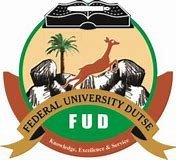
Federal University Dutse (FUD)
Federal University Dutse based in Jigawa State Nigeria, was established in March, 2011 with 206 pioneer students. The University’s campus is located in Dutse, the capital of Jigawa state Nigeria. Dutse is an ancient town in the north western Nigeria and as the University’s host town, Dutse, offers the charm of a small agricultural town, with a unique mix of rocky and sand dunes landscape dotted with date palm trees growing all over the land. The University offers various degree programmes in Sciences, Arts, Social and Management Sciences and Agriculture at Faculties of Science, Agriculture, Art and Social Sciences, Computing and Basic Medical Sciences. The School of Post Graduate Studies equally offers postgraduate degrees and Diplomas in various field similar to those in undergraduate level. The University grew to have a student population of around 8000 by the end of 2018.
www.fud.edu.ng www.sps.fud.edu.ng
Founding member
Membership: Since 2020
Representative:
Prof. Abdulkarim Sabo Mohammed; Deputy Vice Chancellor
Obtained his Bachelor Degree in Applied Biology from Bayero University, Kano in 1989, Master degree in Food Biotechnology from University of Strathclyde Glasgow, United Kingdom in 1995 and Doctor of Philosophy (PhD) in Enzyme and Food Biotechnology from Universiti Putra Malaysia in 2006. He was a Graduate Assistant at the Department of Biological Science, Bayero University Kano (1990 – 1992) and a lecturer (1990 to 1997), an Associate Professor at Universiti Putra Malaysia (2006 – 2017) and now a Professor of Enzyme and Food Biotechnology at the Department of Microbiology and Biotechnology, He was the Deputy director Teaching and Research (2017- 2018) and currently the Deputy Vice Chancellor Academic Services Federal University Dutse Jigawa State. His academic career spun over 25 years with vast experience in Research and Teaching at the university and has authored over 90 publications in international journals and international conference proceedings.
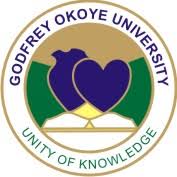
Godfrey Okoye University (GO UNI)
Godfrey Okoye University is a Catholic University of the Catholic Diocese of Enugu, Enugu state-Nigeria. It was founded by Rev. Fr. Prof. Dr. Christian Anieke and established in 2009 by the law of the Federal Republic of Nigeria. The university is reputed as one of the fastest growing private universities in Nigeria offering quality education at an affordable cost. The philosophy of Godfrey Okoye University is based on the nature of human being as a social being and a dialogue seeking being. From this point of view the university understands education as a dialogical process of acquisition and dissemination of knowledge. As its mission, Godfrey Okoye University dedicates itself to impart quality education aimed at inculcating in students strong personality that will ensure the promotion of religious, cultural and epistemological dialogue. The vision of Godfrey Okoye University is to produce graduates who would be outstanding in learning, balanced in character, personality and ready to pursue epistemic unity in all its ramification.
Founding member
Membership: Since 2020
Representative:
Prof. Dr. Christian Anieke; Vice-Chancellor and Board Member of Africa-UniNet
Christian Anieke was born in Nigeria on 10 October 1965. After studying English and Literary Studies (BA/Ed), Philosophy (BA) and Theology (B.Theol.), he got a full scholarship to round off his priestly formation and studies at the University of Innsbruck. At the University of Innsbruck he got a master’s degree (M.Theol.) in Theology. He also obtained another master’s degree (MA) and a doctorate degree (PhD) in English and American Literary Studies. Christian founded Godfrey Okoye University (a vary famous university belonging to the Catholic Diocese of Enugu in Nigeria) in 2009 and since then has been the Vice Chancellor (Rektor). He is also an honorary citizen of Mitterkirchen in Upper Austria. A professor of English and Literary Studies, Christian’s research centres on intercultural communication in postcolonial literature.
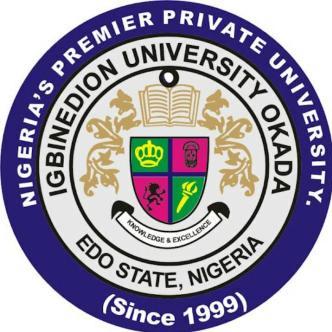
Igbinedion University Okada (IUO)
Igbinedion University, Okada (IUO), in Edo State, Nigeria, is the premier private University in the country, having been licensed to operate as a private university with Certificate No. 001 that was issued on 10th May 1999. With the huge successes that the University has recorded since its inception, the University's pioneering role in private sector tertiary education experimentation is already firmly established. The date, 10th May - has since been recognised as our Founder's Day and 10th May 2020, being our 21st Anniversary, was recently celebrated in style.
Since the establishment of the university, the University has grown in staff strength and student enrolment, spread over seven (7) Colleges (Faculties) with 47 programmes at both undergraduate and postgraduate levels. All our programmes are fully accredited by the National Universities Commission (NUC) – a Commission responsible for Universities’ regulation in Nigeria and their academic programmes. Our programmes are also accredited by the various regulatory professional bodies, such as the Medical & Dental Council of Nigeria (Medicine & Surgery), Council of Legal Education (Law), Council for the Regulation of Engineering in Nigeria (Engineering), Nursing & Midwifery Council of Nigeria (Nursing), Computer Professionals - Registration Council of Nigeria (Computer Communication and Information Technology - IT), Medical Laboratory Science Council of Nigeria (Medical Lab. Science) etc.
The University has graduated over 10,000 students from undergraduate level and over 500 students at postgraduate level. A corpus of distinguished honorary alumni, fellows and affiliates across the globe, that includes the late President Nelson Mandela of South Africa; Most Hon. P.J. Patterson, former Prime Minister of Jamaica; Dr. John Kufuor, former President of Ghana; Alhaji Shehu Shagari, former President of Nigeria; General Abdulsalami Abubakar, Nigeria former Head of State; King Zwelithini Goodwill Kabhekuzulu of Zululand, South-Africa; Alaiyeluwa Oba Okunade Sijuwade, Ooni of Ife, King Otumfuo, the Asantehene of Ghana, Mrs. Ida Betty Odinga, Wife of the former Prime Minister of Kenya. This and other successes recorded by the University were made possible by the well-motivated staff of the University, numbering over 600.
The University has gradually transformed into a smart university with its recent admittance into four (4) leading world-acclaimed ICT academies: Microsoft, Huawei, MikroTik and Cisco. It is also instructive to note IUO's Centres of Excellence: Centre for Contemporary Security Affairs, Centre for Presidential Studies, Centre for Climate Change & Sustainable Development Goals, and the Centre for Leadership & Governance - have become the precursor for our peers and contemporaries.
In furtherance of academic growth and excellence, the University is in partnership with institutions of higher learning and other private and public organizations, both local and international, which includes Lancaster University – Uk, Gaia Education – Scotland, Association of African Universities (AAU) – Ghana, Embassy of the United States of America, British Council – UK, University of Benin, National Water Resources Institute (NWRI), Cutix PLC, Florson World Industries, Benin Film Academy, and other professional bodies such as Institute of Chartered Accountant of Nigeria (ICAN), Chartered Institute of Bankers of Nigeria, Nigeria Institute of Management (NIM) amongst others.
The University has an excellent team of management and Research Team. It also has a teaching hospital known as Igbinedion University Teaching Hospital (IUTH), a multi-campus, vast expanse of land for project development and expansion, and serene environment conducive for learning. IUO has become a point of reference in the rejuvenated education sector as one of Nigeria’s leading and prestigious private university.
Founding member
Membership: Since 2020
Representative
Prof. Deborah Omotsefe Odejimi PhD, Deputy Vice-Chancellor
odejimi.deborah@ioukada.edu.ng; drodejimi@gmail.com
Professor Deborah Omotsefe Odejimi PhD, FIPMD, MRES, FMNES, FCAARS, JP - Professor of Finance & Development Economics - is currently the Deputy Vice-Chancellor of Igbinedion University, Okada, Edo State, Nigeria. She graduated from the University of Benin with BSc in Business Administration (1986) and MSc in Economics and Statistics (1994). In 2012, she got her PhD (Finance) from Igbinedion University, Okada. Professor Odejimi joined the service of Igbinedion University, Okada in November 2001 as Lecturer II, haven spent 13 years lecturing in Ramat Polytechnic, Maiduguri. She rose through the ranks to become a Professor in 2019. She was Head, Department of Economics and Development Studies for five years and Dean, College of Arts and Social Sciences for four years. Professor Odejimi has attended, chaired and presented papers in several academic conferences in Nigeria, Canada, UK, South Africa and the USA. She has published extensively both in local and international peer-reviewed journals. She is a member of the African Think Tank Network (ATTN), Nigerian Economic Society and the Nigerian Environmental Society. Professor Odejimi is a four-time NESA award winner of ‘Best Lecturer of the Year’. Prof. Odejimi has supervised many postgraduate students both at the Master and PhD levels. She has worked extensively on Micro-credits and women empowerment, gender inequality, the informal sector and Economic development amongst others. Professor Odejimi loves travelling, music and reading medical journals. She is married and blessed with children.

Lead City University (LCU)
Introduction:
Nestled in the historic city of Ibadan, Nigeria, since 2005, Lead City University stands as a paragon of academic distinction and innovation. Living true to its motto, "Knowledge for Self-reliance," LCU has consistently pushed the boundaries of education, aspiring to reshape the nation's educational landscape.
Academic Excellence:
A testament to our dedication, LCU, in its 18th year, is recognized by the Federal Government of Nigeria and the National University Commission. We take pride in our alumni network of over 12,000 graduates. Specialized faculties in Social Sciences and Entrepreneurial Studies, Information Technology and Applied Sciences, Medical Sciences, and Law offer diverse programs, ensuring an inclusive approach catering to young aspirants and seasoned professionals.
Innovation & Infrastructure:
LCU remains at the technology vanguard, providing students access to data, information, and knowledge. This is possible through our state-of-the-art infrastructure, including advanced computer facilities, a digital library, and interactive audiovisual tools.
Character and Community:
Beyond academics, LCU champions holistic development. Our students, known for their exemplary conduct, commitment to community service, and active participation in extra-curriculars, stand as a testament. Amplifying their post-academic prospects, we mandate all undergraduates to align with a recognized professional or vocational body.
In a Nutshell:
- Founded in 2005 in Ibadan, Nigeria
- Accredited by the National University Commission
- An alumni strength of 12,000+ graduates
- Commitment to unparalleled education, technology, personal growth, and societal contribution.
Experience a transformative journey with LCU, where our commitment goes beyond conventional education, ensuring every student is equipped for a future of self-reliance.
https://www.lcu.edu.ng/
Membership: Since 2024
Representative
Prof. Olusola Ladokun
Olusola.ladokun@lcu.edu.ng
Professor Olusola Abiola Ladokun, currently the Deputy Vice Chancellor (Science and Technology) and Dean, Faculty of Natural and Applied Sciences at Lead City University in Ibadan, Nigeria, is a seasoned academic with over 20 years of experience in the field of Agricultural Biochemistry and Nutrition. Graduating from the prestigious University of Ibadan, her primary mission is to harness research in addressing public health nutritional dilemmas.
Throughout her illustrious career, Prof. Ladokun has enlightened and guided numerous students across diverse Biochemistry domains, ranging from food and nutritional biochemistry to bioremediation and enzymology. Beyond academics, she has showcased exemplary leadership, serving on the Governing Council of Lead City University and chairing its University Research Ethics Committee (UREC).
A recognized figure in the global academic community, Prof. Ladokun was certified in 2021 as a Programme and Institutional Accreditor by both the Global University Network for Innovation (Africa) and the African Quality Assurance Network. In 2022, she received an esteemed appointment as a Visiting Professor to the Hebrew University of Jerusalem. She is also a Guest Lecturer at the Faculty of Agriculture, University of Mauritius.
Her contributions to science are immense and diverse, with a significant focus on Nutritional Biochemistry, Product Development, Ethnopharmacology, and the innovative field of Bioinformatics in drug discovery. Her research, often aimed at solving real-world challenges, has been published in numerous reputable journals.
Furthermore, she has been honored with multiple awards and fellowships, including the Lady Davis Trust Fellowship in 2022. Passionate about mentoring, she aims to uplift the next generation of researchers in Nigeria, fostering an environment where research flourishes.
Outside of her academic pursuits, Prof. Ladokun enjoys reading, music, and traveling. Committed to sustainability, she envisions a greener, more sustainable world and views platforms like the GEF Small Grants Program as avenues to achieve these global environmental objectives.
For a more comprehensive look into her research and publications, one can explore her profiles on Google Scholar and ResearchGate. Her Orcid ID is 0000-0002-8919-1426.
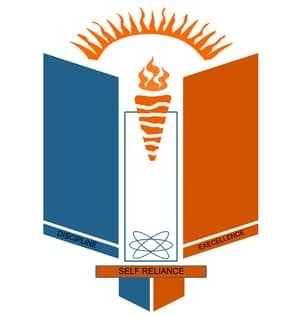
Nnamdi Azikiwe University, AWKA | membership 2025 pending
Nnamdi Azikiwe University is one of the leading multi-disciplinary universities in Nigeria with 15 faculties and 92 departments housing more than 32,000 students. Nnamdi Azikiwe University was established in 1991 and was taken over by the Federal Government by Decree No. 34 of July 15, 1992 to encourage the advancement of learning and to hold out to all persons without distinction of race, creed, sex or political conviction the opportunity of acquiring a higher and liberal education. This University is founded under the philosophy that knowledge should be propagated and disseminated to individuals without let or hindrance with Teaching and Research anchored on Nigerian needs and that of other International societies in general while making university education pragmatic, and using such to forge unity among various communities.
Membership: Since 2022
Representative:
Prof. Ifeoma Enweani- Nwokelo ib.enweani@unizik.edu.ng
The long term research interests I have been involved in include but not limited to elucidating various alterations in gene expression of some pathogenic viruses, yeasts, moulds, parasites and bacteria isolated from humans, fomites and environment which may have immensely contributed to human disease. The academic training I had undergone and research experience have provided me with an excellent background in multiple biological disciplines including bioinformatics, metagenomics, biochemistry, and genomics. Masters’ degree research dwelt on ‘Candidosis in Jos: Incidence and Antimicrobial Studies’ which was carried out under the supervision of Prof. CIC Ogbonna. I embraced the skills of yeast cultivation and identification by the use of media and Gram Staining techniques, microscopy, and biochemical tests. Skills in the study of antimicrobial studies were also imbibed employing both standard antifungal agents and plant extracts with medicinal properties. Doctoral research project was on ‘Virulence markers of Candida strains isolated from various clinical samples in Delta and Edo States in Nigeria’. I gained expertise in the monitoring of different types of virulence markers in pathogenic Candida species. I undertook the postdoctoral fellowship in Germany on ‘Molecular typing and association of dermatophytes with ABO blood group of skin scrapings collected from Nigerian children.’ This was done under the supervision of Dr. Frau. Yvonne Graeser in Humboldt Universitat, Berlin. I acquired the molecular typing skills including DNA/RNA extraction, PCR technique, Gel electrophoresis, Gas Liquid Chromatography, amongst others. It was shown that Trichophyton rubrum complex has other species like T. violaceum, T. soudanense which emanated as variants. Another postdoctoral fellowship grant for Women in Science was granted to me by Fundacieon Mujeres por Afrika, Spain. I studied the Gut Microbiome of Nigerian children suffering from diarrhoea. I worked with Silvia Herrera Leon in Carlos III Institute of Health located in Mahajahonda, via Madrid, Spain. In this Institute, I was exposed to several techniques and modern equipments and some aspects of Bioinformatics and Genomics. I undertook stool analysis using different media, kits, DNA extraction from microbial isolates and directly from faecal samples. Nanopore was used in the quantification of extracted DNA. I was also exposed to Automation for the DNA extraction. Gel electrophoresis was used in detection of the bands. Real time PCR technique was employed in the genetic profiling of the parasites. All the microbial isolates were subjected to sequencing. Some were sent out for Metagenomics using Illumina platform. Microbial isolates worked on included enterobacteriaceae, yeasts, and parasites. Currently, I am the Research Coordinator for the Health Sciences Research Cluster in Nnamdi Azikiwe University, Awka. I have a passion for health and wellbeing of Nigerians using food as medicine. I have received several academic, teaching, administrative and community service awards. Some research Grants and two (UMFLINT, Michigan - USA and UWE, Bristol-England) international University linkages to Nnamdi Azikiwe University, Awka had been attracted by me. I am privileged to be awarded fellowship of professional academic organizations through research publications within and outside the Country. Currently, I direct the affairs of Directorate of International Collaboration and Linkages in Nnamdi Azikiwe University, Awka. Nigeria.
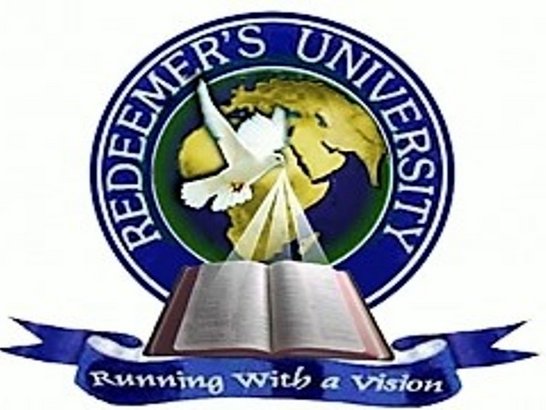
Redeemer’s University (RUN)
Redeemer's University is a leading Private Higher Education Institution licensed in 2005 by the National Universities Commission in Nigeria. It has a vision to be the foremost academic institution setting standards through continuous commitment to excellence geared towards making a transformative impact on society. Her mission is to continuously impact the society through commitment to excellence in education, research, creativity, innovation, entrepreneurship and raising global leaders as change agents imbued with God-fearing attributes. The University is located in the South-West of Nigeria, precisely in Ede, Osun State. The University has eight Faculties: Faculty of Humanities, Faculty of Management Sciences, Faculty of Social Sciences, Faculty of Natural Sciences, Faculty of Basic Medical Sciences, Faculty of Law, Faculty of Engineering and Faculty of Environmental Sciences. There are thirty-nine Departments that make up these Faculties. The Chancellor of the University is Retired General T. Y. Danjuma and the Vice-Chancellor of the University is Professor Anthony Enitan Akinlo. The University is currently running both undergraduate and postgraduate programmes which have been fully accredited by the National Universities Commission in Nigeria. The University has 180 academic staff members and a total student population of over 2,100. The University is home to the World Bank funded African Centre of Excellence for Genomics of Infectious Diseases (ACEGID) which has contributed to the fight against infectious diseases like Ebola, Lassa fever and currently COVID-19. In 2019, the University was awarded the best Private University in the South West Nigeria especially because of her research output.
Membership: Since 2021
Representative
Prof. Adebola Adebileje, Deputy Vice-Chancellor
adebilejea@run.edu.ng, dvc@run.edu.ng
Professor Adebola Adebileje is a Professor of Applied English Linguistics. Her areas of interest are English as a Second Language, Nigerian English, English Syntax, Sociolinguistics, and Onomastics. She attended University of Ilorin, Ilorin where she had her PhD (English Language Education) in 2002. Her research focus largely dwells on actual language use in which she compares and examines processes, patterns and structures (Syntax) between languages, especially, indigenous languages and the English Language; and identifying challenges in the actual use of language (English as a Second Language) by students, teachers and the Nigerian society (social influence) at large. She joined the services of Redeemer’s University, Ede, Osun State in 2005 where she lectures in the Department of English. She was the pioneer Coordinator, English Department 2005-2009; the Ag. Director, Directorate of General Studies Programmes (DGSP) from 2014 to 2016; and the Dean, Faculty of Humanities from 2018 to 2019. She rose through the ranks to become a full Professor in 2016 and she is currently the Deputy Vice-Chancellor. Professor Adebileje regularly attends conferences and workshops both locally and internationally where her research interests are portrayed through scholarly discourse and presentations. She has over forty publications in reputable local and international journals. Her current collaborative research, Diachronic Evolution of English in Nigeria is being sponsored by Redeemer’s University. Some Professional bodies she belongs to include Nigerian English Studies Association (NESA) now English Scholars Association of Nigeria (ESAN); Linguistic Association of Nigeria (LAN); Reading Association of Nigeria (RAN); American Association of Applied Linguistics (AAAL); and Linguistic Society of America (LSA). She is the Vice President; Society for the Study of Names in Nigeria (SSNN) and Chairman to various key Committees of the University. Professor Adebola Adebileje loves teaching and mentoring students. She strongly believes in teamwork for building a great and successful organisation. She is a Pastor in the Redeemed Christian Church of God and happily married to Pastor Olusegun Adebileje. They are both blessed with children and grandchildren.
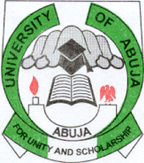
University of Abuja (UOA) | membership 2025 pending
The Capital city of Abuja is in the North Central Geo-Political Zone of Nigeria in the Federal Capital Territory (FCT) which occupies a land area of 7,753.9 sq. km. The FCT shares boundaries with Kaduna, Kogi, Nassarawa and Niger States.
The University of Abuja was established on January 1st, 1988 as a dual mode University with the mandate to run both conventional and distance learning academic programmes. It was the first University in the country to assume such dual mandate at inception.
The establishment of the University was in recognition by the Federal Government that the new Federal Capital requires a first-class institution of higher learning that combines academic excellence with the pursuit of the Unity of Nigeria. The University provides educational opportunities to all persons without distinction of race, gender or political convictions. University of Abuja has abundant potential in view of its favored location.
Academic activities started on the mini - campus in 1990. In the same year, the University was allocated an expanse of land covering over 11,800 hectares along the Abuja- Gwagwalada road for the development of its main campus. The University operates from both its Main Campus, along Abuja Airport Road, and the Mini - Campus in Gwagwalada while the Distance Learning offices of the University are located within the Municipality [Garki Area].
The University is within 10 minutes from the international airport and near a major road linking the northern and southern parts of the country and is therefore easily accessible by air and by road. The University is in close proximity to the seat of government which makes it easy to implement research findings and to translate research to policy.
Membership: Since 2021
Representative:
Assoc. Prof Aisha Sani Maikudi; Aisha.maikudi@uniabuja.edu.ng
Aisha Sani Maikudi was born in Zaria, Nigeria, on the 31st January. She received the LLB degree from the University of Reading in the UK, the LLM from the London School of Economics, UK, the BL from the Nigeria Law School and the Ph.D from the University of Abuja, Nigeria. In 2007, she did the National Youth Service Corps at the Corporate Secretariat and Legal Division of the Nigerian National Petroleum Corporation. In 2008, she joined the University of Abuja as a Lecturer 2 and in 2018, became an Associate Professor of International Law. To date, she is the youngest Associate Professor of the University of Abuja. She specializes in United Nations Law and has written extensively on the area. She floated a Postgraduate course on United Nations Law and has supervised numerous undergraduate and postgraduate works. In 2014, she became the first female Head of Department, from the Faculty of Law, in 2018, the first female Vice Dean, Faculty of Law and in 2019, the pioneer Director, University of Abuja International Centre. She is a Member of various professional associations: the Nigerian Bar Association, the Nigerian Law Teachers Association, the International Federation of Women Lawyers and the Nigerian Institute of Management.
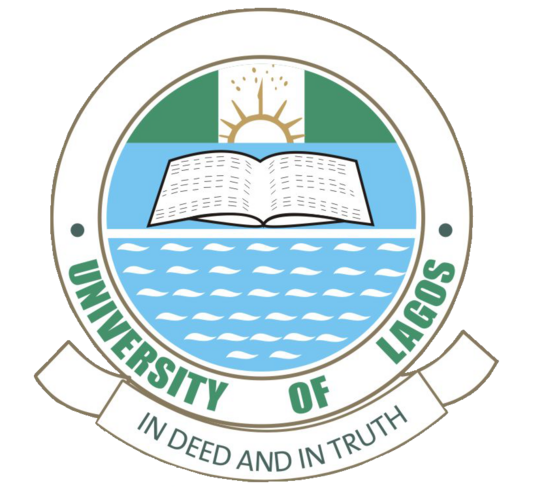
University of Lagos (UNILAG)
more information will follow
Founding member
Membership: Since 2020
Representative:
Prof. Bolanle O. Oboh Deputy Vice-Chancellor
dvc-ar@unilag.edu.ng, boboh@unilag.edu.ng
more information will follow
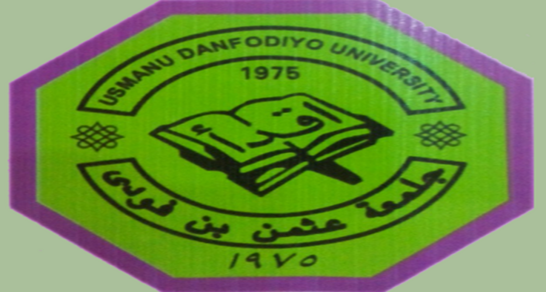
Usmanu Danfodiyo University (UDUS) | membership 2025 pending
Brief Description of the University
The Usmanu Danfodiyo University, Sokoto (formerly University of Sokoto until the change of name in 1988) is one of the four second generation universities established in 1975 by the Federal Government of Nigeria. At that time, three University Colleges were also upgraded and became full-pledged universities. These seven universities became popularly known as “Seven Sisters” or “Second Generation Universities”. These are: the University of Sokoto (renamed in 1988 as Usmanu Danfodiyo University, Sokoto); the University of Maiduguri; the University of Port Harcout; Bayero University, Kano; University of Calabar; University of Jos and University of Ilorin. The University is unique in the sense that of all the second generation Universities, it is the only one that started from scratch. In fact, by the time the pioneer Vice Chancellor was appointed, the University was no more than a concept or an idea; unlike the other six “Sisters” which had been Colleges of older Universities, or had inherited physical structures from where they started to operate. During its first convocation ceremony held on 22nd November, 1980, the University graduated its first set of students; a total of seventy-two students graduated during the period.
The University started to function at a temporary site, now referred to as the City Campus. Student enrolment into the University started in October, 1977 in the Faculties of Arts and Islamic Studies, Social Sciences, Education and Extension Services and Science; and actual teaching began on 20th October, 1977 with ninety three undergraduate students and one hundred and two students enrolled into pre-degree programme. Movement to the Main Campus (now referred to as permanent site) began in 1982.
Development of Faculties, Schools, Centres and Programmes
As noted earlier, the University at inception started with only 4 Faculties: Arts and Islamic Studies, Social Sciences, Education & Extension Services and Science. By 1985, the number of Faculties increased to 8 with the establishment of College of Health Sciences (CHS), Faculties of Law, Agriculture and Veterinary Medicine. The Postgraduate School was also established earlier in 1983. Faculties of Management Sciences and Pharmaceutical Sciences were established in 2002 and 2007 respectively, as well as School of Medical Laboratory Science in 2002. Faculty of Engineering was established in 2016 and the first set of students was admitted in the 2016/2017 academic session. Five Faculties were subsequently established in the CHS, viz: Faculty of Clinical Science and Faculty of Basic Medical Science, established in 2014; and the Faculty of Basic Clinical Science which was established in 2017, and Faculty of Dental Sciences established in 2019.
Currently (2020), the University has a total of 14 Faculties, a Postgraduate School, School of Medical Laboratory Science, six Research Centres, Central Research Laboratory and a number of other academic and non-academic support units. The Faculties are as follows: Agriculture, Arts and Islamic Studies, Basic Clinical Sciences, Basic Medical Sciences, Clinical Sciences, Dentistry, Education & Extension Services, Engineering & Environmental Design, Law, Science, Social Sciences, Management Sciences, Pharmaceutical Sciences, and Veterinary Medicine. The Research Centres are: Sokoto Energy Research Centre (SERC), Centre for Islamic Studies (CIS), Centre for Hausa Studies (Cibiyar Nazarin Hausa), Centre for Peace Studies (CPS), Centre for Advanced Medical Research and Training (CAMRET) and Centre for Agricultural and Pastoral Research (CAPAR). Two other Centres had existed before: Centres for Energy & Environment and Nomadic Education & Curriculum Development with support from the defunct Federal Environmental Protection Agency and Nomadic Education Commission respectively.
The University runs more than 50 undergraduate programmes in various fields of human endeavour i.e. Arts, Humanities, Pure and Applied Sciences. Similarly, more 150 postgraduate programmes (PhD, MPhil, Masters’ and postgraduate diploma programmes) are being run by the University.
University Campuses
The University generally consists of three campuses that are geographically separated: The main campus – referred to as the Permanent Site, the City Campus and the Usmanu Danfodiyo University Teaching Hospital (UDUTH). The two campuses aside the Permanent Site are located in the main Sokoto Township.
The Main Campus houses Central Administration Complex, Postgraduate School, Faculties of Agriculture, Arts and Islamic Studies, Education and Extension Services, Law, Science, Social Sciences, Management Sciences and Engineering. The SERC, CPS, Division of General Studies and Central Research Laboratory are also located in the Permanent Site.
The City Campus houses Faculty of Veterinary Medicine (although, the Faculty would soon move to the Permanent Site) and Centres for Islamic and Hausa Studies. The UDUTH campus houses all programmes and Faculties under the College of Health Sciences, School of Medical Laboratory Sciences and Faculty of Pharmaceutical Sciences.
PHILOSOPHY, OBJECTIVES, VISION AND MISSION - Philosophy of the University
As a centre of learning, the Usmanu Danfodiyo University, Sokoto shall promote and disseminate knowledge, pursue research, contribute to the universal truths and maintain the international character of a University. It shall specifically:
- Endeavour to identify with the needs and aspirations of the people where it is located;
- Uphold and develop the ideals of the community within which it is situated and at the same time promote national unity;
- Cherish and preserve the cultural heritage of the society; and
- Establish a two-way rapport between the University and the society. In pursuing its aims and objectives, the University will always be guided by the requirements of the national plan, manpower needs and sheer physical and environmental factors.
Objectives of the University
The Usmanu Danfodiyo University, Sokoto Act states clearly the functions and the heights that the institution should aspire to attain through teaching, research and community service. The objectives of the University shall be:
- to encourage the advancement of learning to hold out to all persons without distinction of race, creed, sex or political conviction the opportunity of acquiring liberal education;
- to provide courses of instruction and other facilities for the pursuit of learning in all its branches, and to make these facilities available on proper terms to such persons as are equipped to benefit from them;
- to encourage and promote scholarship and conduct research in all fields of learning and human endeavour;
- to relate its activities to the social, cultural and economic needs of the people of Nigeria; and
- to undertake any other activities appropriate for a University of highest standard.
Vision of the University
“To be a centre of excellence in terms of teaching, research and community service in all fields of human endeavour i.e. Arts, Humanities, Pure and Applied Sciences”
Mission of the University
“To provide quality teaching, research and community service to deserving persons and communities, under the most peaceful atmosphere and in line with the national policy on education, irrespective of social class, gender, race, nationality and religion; and to ensure that at all times it serves as a centre for pursuit of research and academic excellence”.
Founding member
Membership: Since 2020
Representative:
Prof. Dr. Lawal Suleiman Bilbis; Vice Chancellor
Professor Lawal Suleman Bilbis obtained a PhD in Biological Chemistry from the University of Essex, Colchester in 1992, and rose to become a Professor of Biochemistry in 2002 at the Usmanu Danfodiyo University, Sokoto (UDUS).
Bilbis has to his credit over 100 research publications in journals across the globe. His research papers are in the areas of protein chemistry, clinical and paediatric nutrition, elucidation of mechanism of action of antidiabetic, antihypertensive and antimalarial agents. His main research focus is however on oxidative stress and pathogenesis of traumatic brain injury, stroke, diabetes and cardiovascular disease. He has presented more than 70 research papers at conferences across the world and has 3 patents to his credit. He has attracted grants to support his research from agencies across the world and has supervised to completion 18 PhD theses, and several M.Sc. dissertations.
He was a Research Fellow at the King Khalid Military Academy, Riyadh, Saudi Arabia (1996-1998). Bilbis was on the Executive Council of the Nigerian Society of Biochemistry and Molecular Biology (NSBMB) between 1995 and 2011. He was the National President of the Society between 2007 and 2011. Currently he is on the Executive Council of Federated African Societies of Biochemistry and Molecular Biology. He is a Fellow of Nigerian Society of Biochemistry and Molecular Biology (FNSBMB), Science Association of Nigeria (FSAN), Solar Energy Society of Nigeria (FSESN) and African Scientific Institute (FASI). Prof. Bilbis was Head, Department of Biochemistry, Deputy Dean, Dean of Science, Director University Development Office and Deputy Vice Chancellor Academic of UDUS. He was the Pioneer Vice Chancellor of Federal University Birnin Kebbi and currently the Vice Chancellor of Usmanu Danfodiyo University, Sokoto.
He is happily married with children and grandchildren.

Veritas University | membership 2025 pending
Veritas University is located in a beautiful, serene, lush green environment in Bwari Area Council of Abuja, the Federal Capital Territory, less than one hour from the Abuja international Airport and away from the bustle of Abuja city life. The topography is characterized by beautiful hills and valleys and streams that provide a wonderful scenery for visitors and a great ambience for learning and research. The university was established in 2007 by the Catholic Bishops’ Conference of Nigeria and licensed by the National Universities Commission as conventional university. It commenced its initial operations in Obehie, Abia state before it was moved to its permanent site in Abuja in 2014. The university has over 50 undergraduate and 18 postgraduate programs in eight faculties.
Membership: Since 2023
Representative:
Prof. Hyacinth Ichoku
ichokuh@veritas.edu.ng; hichoku@yahoo.com
Hyacinth Ichoku is a Professor of Development Microeconomics with specialization in Health Economics. He obtained BSc, and MSc (Economics) from the University of Nigeria Nsukka; M.Soc Sc., and PhD in Health Economics from the University of Cape Town (South Africa) in 2000 and 2006 respectively. From 2001 till date, he has combined intensive classroom teaching with consultancies for development agencies. He has published over 60 papers in international peer reviewed journals. He is currently the Vice-Chancellor of Veritas University – Abuja.
